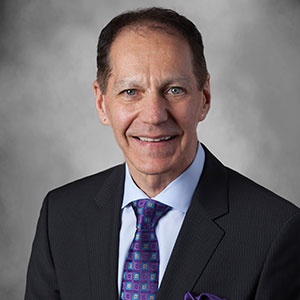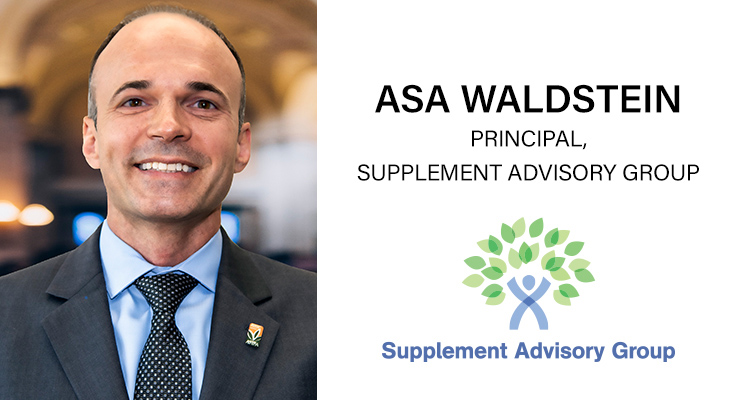Columns
Limiting Marketing Risk for Hemp and CBD Products
Asa Waldstein, principal at Supplement Advisory Group, advises companies on how to navigate murky waters in today’s marketplace.

By: Sheldon Baker

Asa Waldstein is a certified clinical herbalist and a 20-year dietary supplement executive who is principal of the consulting company Supplement Advisory Group, a boutique group focusing on marketing risk analysis and practical marketing solutions for the web and social media. He is the founder and host of Asa’s Regulatory Education Series, a free educational platform focusing on GMP compliance, enforcement trends, and marketing tips for the supplement and hemp industries. He chairs the American Herbal Products Association’s (AHPA) Cannabis Committee. More about Asa is available at www.AsaWaldstein.com.
Area Code 420 (AC 420): Share some background about the Supplement Advisory Group, please.
Waldstein: Supplement Advisory Group is a boutique regulatory consulting company focusing on finding online marketing risk and helping companies develop effective and lower-risk ways to talk about their products. Our approach is informed by 20 years of boardroom discussions about marketing.
It does not help any company to say, “you shouldn’t do this.” We share the risk level (1-5) of marketing statements, explain what that means with helpful videos and articles, then suggest possible lower-risk and effective ways to say the same thing. This is the nuance of marketing: communicating product benefits in a truthful manner that will not lead to agency action such as a warning letter. Supplement Advisory Group’s goal is to make clients the regulatory experts by educating about risk and enforcement trends while providing regulatory support.
This year we launched our “Make You The Regulatory Expert Package“ that allows companies to choose from a menu of regulatory needs such as social media engagement and blogs. This is a personalized live training that is recorded for future company training and employee onboarding. These trainings are really valuable and fun.
AC 420: What specific services do you provide the hemp/CBD industry?
Waldstein: Much of the work we do for the hemp-CBD industry is dietary supplement DSHEA compliance-oriented support for web and social media content. The hemp product industry does have its own nuances such as product registration and we have helped register over 150 different products in states such as West Virginia, Utah, and Alaska.
We also review hemp-CBD labels to ensure they comply with supplement regulations but also with state regulations such as this requirement in California: such copy reads, “The FDA has not evaluated this product for safety and efficacy.” We have also helped supplement companies wanting to expand into the hemp space understand common pitfalls to avoid such as banking, credit cards, insurance, and the potential to be banned from social media.
AC 420: Compliance and labeling issues are a major concern for hemp/CBD/cannabis?
Waldstein: I am also asked if there is such a thing as a 50-state-compliant label and the answer is kinda-not-really. Here are some examples that show the complexity. There are states such as Louisiana that do not allow the word “dietary,” as in “dietary supplement” on labels. They instead require “hemp” supplements to be listed.
There are other states that require the amount of THC to be listed on a product label, which is counterintuitive to supplement labeling regulations where a contaminant level (THC) would never be on a label. Colorado’s labeling guidance to industry is a “Product Facts” panel, which is a made-up and frankly terrible way to list supplement facts.
We also need to consider all of the warnings that different states require, such as a drug test failure warning. The longer the FDA has an unfavorable approach to hemp-CBD the more states will add their own regulations, which is a vicious cycle of burdens that does not help companies trying to sell in many states.
AC 420: Every state has different rules for CBD and cannabis. Are you able to address this with your clients?
Waldstein: State regulations seem to be everchanging, so keeping an eye on newly passed laws and how their regulators are interpreting them is key. Here are some examples we share with clients that demonstrate the complexities.
States such as Utah require product-specific registration that is relatively simple to address, as this provides a clear pathway for allowing CBD products. There are states such as New York that only require a general registration but then have specific labeling requirements that require certain warnings, and prohibit products containing over 3,000 mg of cannabinoids. Then there are states that are quiet on their allowance of CBD products, which creates a more-risky atmosphere if a company decides to distribute in those areas.
AC 420: It is my understanding hemp manufacturers are lacking in their approach to marketing communications and brand promotion. True or false?
Waldstein: Many in the hemp product industry are not from dietary supplements and there is a steep learning curve to understand the nuances of marketing and promotion. It is very common that well-intentioned social media managers or content writers from outside the supplement industry are hired to run a hemp-CBD company’s social account. Unless properly trained, these staff members can easily attract warning letters with the use of an incorrect hashtag, “Liking” or sharing content with disease words, or discussing ingredient benefits using high-risk words such as “anti-viral.” This is why education is paramount and why I always suggest that hemp companies hire from the supplement industry if possible.
AC 420: Review your role as chair of AHPA’s Cannabis Committee.
Waldstein: I have the great honor of being chair of AHPA’s largest committee. My duties include forwarding AHPA’s mission to promote responsible commerce of herbal products, keeping order at committee meetings, engaging with current member needs, and helping prospective members understand the greatness of AHPA. I have never seen something as nuanced as cannabinoid regulations before and we are at an inflection point in the history of the great hemp plant; and there has never been a more important time to support the hemp industry and AHPA, as the rules that we help share today will affect the future of the industry for many years to come.
AC 420: AHPA has been a major political advocate for the CBD and cannabis industry. How so?
Waldstein: AHPA’s Cannabis Committee is celebrating its 12th anniversary this year. This shows the foresight of AHPA in putting this committee together when many in the supplement industry did not even want to mention the word cannabis.
One of AHPA’s accomplishments is the Hemp Lexicon, which helps to define and standardize terms such as “full-spectrum” and “THC-free.” The Hemp Lexicon was developed cross-functionally with other groups such as the U.S. Hemp Authority and pulled in AHPA’s other committees that have years of experience in these types of matters.
One of the Cannabis Committee’s mottos is “we have been here before,” meaning hemp should be treated as any other herbal extract, so reinventing the regulatory framework is unnecessary. The depth of experience that AHPA’s members bring to the Cannabis Committee gives us the ability to learn from all the mistakes of the past as we continue to move the hemp and supplement industries forward—as we see with AHPA’s Good Agricultural Practices and GMP guidance document for hemp products, and the Prop 65 for hemp products guidance document.
AHPA participates in important stakeholder initiatives such as the USP Medical Cannabis Panel, AOAC International CASP program, and ASTM D37 Cannabis Committee and also provides well-researched comments on federal legislation such as HR 841 and state legislation such as Oregon’s “Adult Use Cannabis and Hemp Concentration Limits” bill.
AC 420: Any industry trends you are seeing?
Waldstein: The past year has not been kind to the hemp industry and many CBD startups have folded. Out of adversity comes opportunity. Those with product differentiators such as increased bioavailability delivery formats and those companies who are investing in proving safety will have a better chance of succeeding in this billion-dollar industry.
From a regulatory perspective, the FDA is cracking down on clinical study citations as we saw with the recent seven joint FDA/FTC warning letters sent to CBD companies. We are also seeing more focus on social media including hashtags, YouTube, and reposting.
AC 420: What is one important message you would want to share with hemp and CBD (cannabis) manufacturers in their pursuit of business happiness?
Waldstein: My suggestion is to act as you want to be regulated, which for ingestible hemp products is as a dietary supplement, in my opinion. I also suggest following enforcement trends and learning to read FDA warning letters, because by understanding enforcement trends you can adapt marketing and stay ahead of trouble. This is an important tool for any savvy marketer, executive, investor, and regulatory affairs professional.
About the Author: Sheldon Baker is CEO of the Baker Dillon Group LLC and has created numerous nutraceutical brand marketing communications and public relations campaigns for many well-known supplement and food industry companies. For interview consideration or brand marketing consulting, reach out to him at Contact@The420AreaCode.com.




















